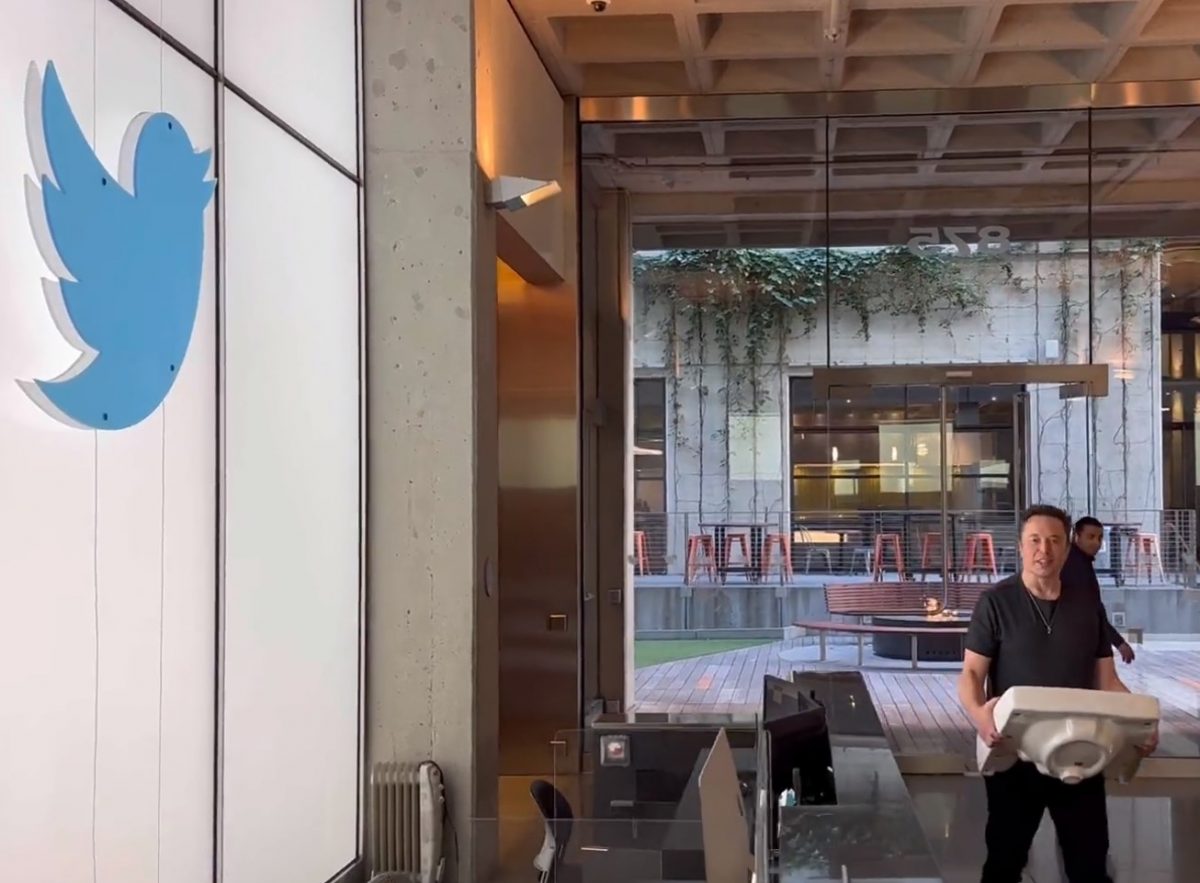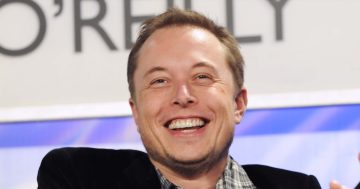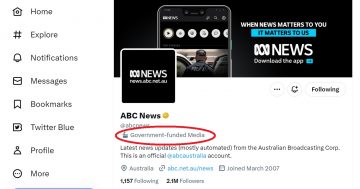
Let that sink in. Did Elon Musk buy Twitter so he could pull the world’s most expensive dad joke? Photo: Elon Musk.
Twitter had descended into a cesspit of depravity long before Elon Musk got his hands on it and turned it into a running joke with a yet-to-be-determined punchline.
The demise of the one-time doyen of the murky world of social media has certainly picked up pace since one of the world’s richest men decided to give it a shake-up that no-one outside a few crackpots who had been banned from the platform actually asked for.
I joined Twitter in its early days, and used to very much enjoy the interaction with radio listeners and the broader community. It seemed to strike a chord with Canberrans who tweeted regularly and, mostly, sensibly.
The politicians and the press gallery especially enjoyed the opportunities provided, regularly tweeting updates on daily political activities.
In many ways Twitter played a significant part in ushering in what we all bemoan today – the demise of the news cycle as we once knew it, replaced by ongoing chatter that so easily spooks decision-makers that they have actually become afraid to make decisions.
Then Twitter got overtaken by the bots, who brought absolutely nothing of any worth to the platform. The bots introduced the worst elements of public discourse, and as quick as Twitter shut down these rogue accounts, hundreds more would appear.
And then the real-life bullies and loose cannons got on board. It really became a horrible place to be.
You tweeted at your own peril, knowing that even the most innocuous 40-character missive could unleash all types of vitriol.
I know in 2022 it is very easy to blame Donald Trump for everything, but his influence on Twitter and where it finds itself now can’t be understated. The President of the United States made it OK to spread lies and disinformation, to ridicule and threaten those with different opinions to your own.
Twitter eventually booted Trump off the platform, but by then it was too late. The social media platform once favoured by news makers and news junkies was spiralling out of control. Mental health experts stressed about the damage it was causing, as the filters that we would normally apply to everyday conversation were no longer being respected.
People were being ridiculed for their looks, for their body shape, for their sexual orientation, their religion or their political beliefs. The social media pile-on, in both directions, resembled a frenzied wild-dog attack.
In stepped Elon Musk, but few saw him as a potential saviour. His behaviour for some time has been erratic, to put it mildly. And when one of his first actions as new owner was to tweet a baseless allegation about the vicious attack on Paul Pelosi, the husband of the US Speaker, the rush for the exit began.
One of the few redeeming features remained the blue tick that appeared beside the names of politicians, journalists and other high-profile tweeters to indicate their identity had been verified (full disclosure – I have a blue tick).
Now Musk is putting the blue tick up for sale. For a set monthly fee, you can become legitimised on the social media platform no one wants to be on any more. The proposal is so open to abuse, but don’t underestimate the desperation of a man who needs to find a way to recoup the $44 billion he paid for a busted-ass app.
All of this is without even mentioning the mass layoffs Musk has ordered. If Twitter turned up in a mouldy old bag at a local garage sale it’s doubtful it would now find any takers.
Twelve months ago I got myself a new phone. By choice I have not installed a single social media app on it. No Facebook, no Instagram, no Snapchat, no YouTube and no Twitter. Is my life better for it? You better believe it!



















